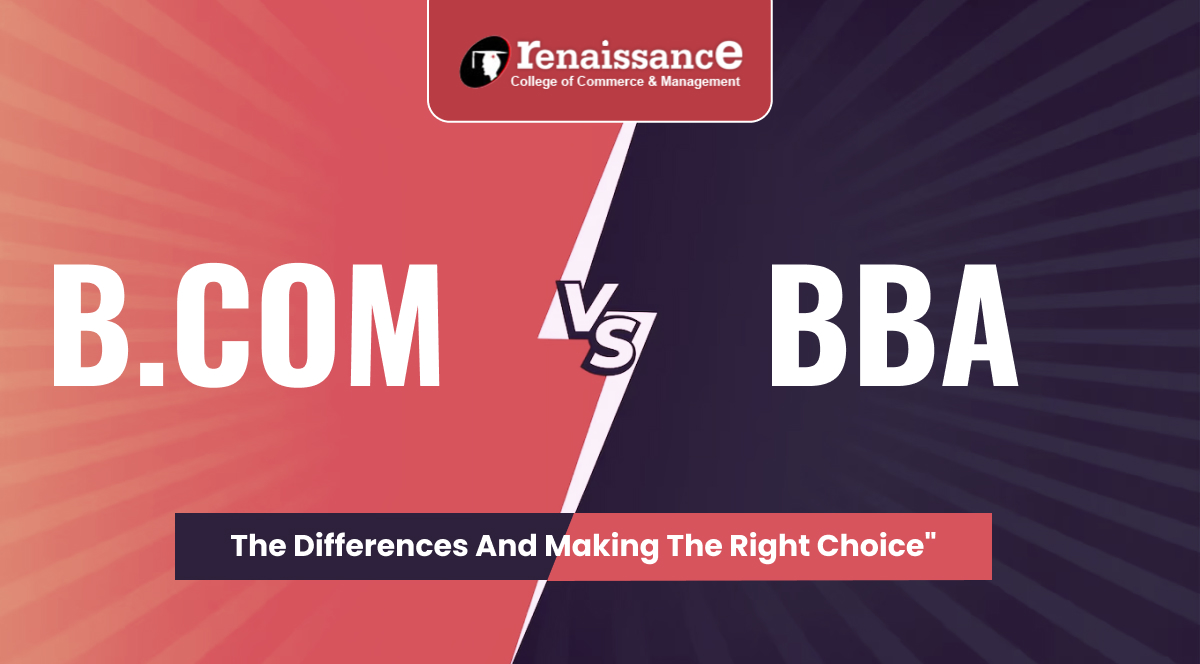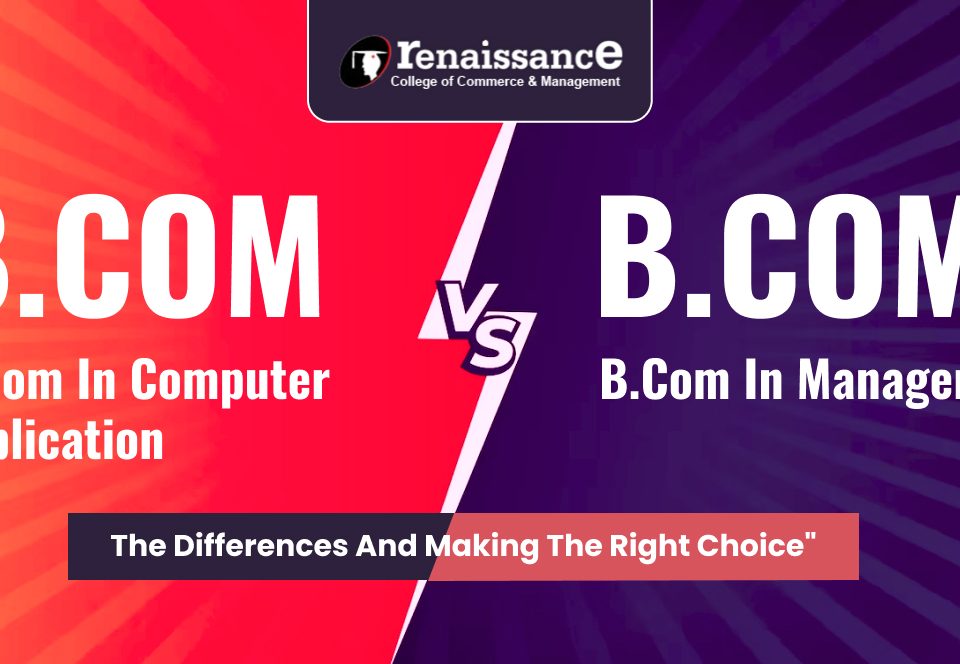BBA vs B.com. Which is Best?
Introduction
When it comes to pursuing a career in the field of commerce and business, two popular undergraduate courses that come to mind are B.Com (Bachelor of Commerce) and BBA (Bachelor of Business Administration). Both courses provide a strong foundation in the field of commerce and management and offer promising career opportunities to graduates. However, choosing between the two can be a daunting task, especially if you are unsure about the differences and similarities between them. In this blog post, we will provide an in-depth comparison of B.Com vs BBA, and help you make an informed decision about which course to choose based on your interests and career goals.
B.Com (Bachelor of Commerce)
B.Com, short for Bachelor of Commerce, is an undergraduate degree course that focuses on commerce and accounting-related subjects. The duration of the course is usually three years, and it is offered by various universities and colleges in India and abroad. B.Com provides a strong foundation in accounting, finance, taxation, economics, and business law, among other related subjects. The curriculum of the course is designed to equip students with practical skills and knowledge related to the world of business.
After completing B.Com, students have a wide range of career options to choose from. They can pursue careers in accounting, finance, taxation, auditing, banking, insurance, and consulting, among other fields. Many students also go on to pursue further studies in commerce and management, such as an MBA or a Master of Commerce (M.Com) degree.
One of the advantages of pursuing B.Com is that it provides a solid foundation in accounting and finance, which is useful in a variety of industries. The course also teaches students important skills such as problem-solving, critical thinking, and decision-making, which are essential in the world of business.
If you have an interest in accounting, finance, and related fields, and are looking for a course that provides a strong foundation in these areas, then B.Com can be an excellent choice for you.
BBA (Bachelor of Business Administration)
BBA, short for Bachelor of Business Administration, is an undergraduate degree course that focuses on the principles of business and management. The duration of the course is usually three years, and it is offered by various universities and colleges in India and abroad. BBA provides a broad understanding of business administration, management principles, and entrepreneurship.
The curriculum of the course is designed to provide students with knowledge and skills related to different aspects of business, such as marketing, human resources, finance, and operations management. BBA also emphasizes developing leadership and communication skills, which are essential for success in the world of business.
After completing BBA, students have a variety of career options to choose from. They can pursue careers in marketing, finance, human resources, operations management, and consulting, among other fields. Many students also go on to pursue further studies in management, such as an MBA or a Master of Management (M.Mgt) degree.
One of the advantages of pursuing a BBA is that it provides a broad understanding of the principles of business and management, which can be useful in a variety of industries. The course also emphasizes practical skills such as teamwork, communication, and problem-solving, which are essential in the world of business.
If you have an interest in business and management and are looking for a course that provides a broad understanding of these areas, then BBA can be an excellent choice for you.
Comparison between B.Com and BBA
While B.Com and BBA share some similarities in terms of their focus on business and commerce, there are several key differences between the two courses. Here are some of the main differences:
- Curriculum: The curriculum of B.Com is focused on commerce and accounting-related subjects, while BBA covers a broader range of topics related to business and management.
- Specialization: B.Com does not offer specialization options, whereas BBA often provides students with the opportunity to specialize in areas such as marketing, finance, human resources, and operations management.
- Career opportunities: While both B.Com and BBA provide graduates with a variety of career opportunities in the field of business, BBA graduates may have an edge when it comes to job opportunities in areas such as marketing and management.
- Further studies: BBA is often considered a better option for students who are interested in pursuing further studies in management, such as an MBA, while B.Com is more suitable for students who wish to pursue further studies in accounting and finance.
- Skillset: B.Com emphasizes technical skills such as accounting and finance, while BBA emphasizes soft skills such as communication, leadership, and problem-solving.
In terms of which course is better suited for whom, it ultimately depends on your interests and career goals. If you have an interest in accounting and finance and wish to pursue a career in these areas, then B.Com may be the better option for you. On the other hand, if you are interested in business and management, and wish to develop a broad understanding of these areas, then BBA may be the better choice.
| B.Com (Bachelor of Commerce) | BBA (Bachelor of Business Administration) | |
| Career prospects | Accounting, Finance, Banking, Taxation, Auditing, Consulting | Marketing, Human Resources, Operations Management, Finance, Consulting |
| Average Salary | INR 3-5 lakhs per annum | INR 3-6 lakhs per annum |
| Duration of course | 3 years | 3 years |
Conclusion
To conclude, both B.Com and BBA are undergraduate degree courses that focus on different aspects of business and commerce. While B.Com provides a more specialized understanding of accounting and finance, BBA offers a broader understanding of business administration and management.
Choosing between B.Com and BBA ultimately depends on your interests, career goals, and skillset. B.Com is suitable for those interested in accounting and finance, while BBA is more suitable for those interested in business and management.
Both courses offer a variety of career opportunities in different areas of business, and the average salaries for both courses are similar. It’s important to note that salaries and career prospects may vary depending on the individual’s skills, qualifications, and job market conditions.
Ultimately, choosing between B.Com and BBA requires careful consideration of your interests, strengths, and future goals. By making an informed decision, you can set yourself up for a successful and fulfilling career in the world of business.
FAQ
What is the difference between B.Com and BBA?
A: B.Com focuses on commerce and accounting-related subjects, while BBA covers a broader range of topics related to business and management. Additionally, BBA often provides students with the opportunity to specialize in areas such as marketing, finance, human resources, and operations management.
Q: What are the career prospects after completing B.Com?
A: Graduates of B.Com can pursue careers in accounting, finance, banking, taxation, auditing, consulting, and other related fields.
Q: What are the career prospects after completing BBA?
A: Graduates of BBA can pursue careers in marketing, human resources, operations management, finance, consulting, and other related fields.
Q: What is the average salary for B.Com graduates?
A: The average salary for B.Com graduates in India is around INR 3-5 lakhs per annum.
Q: What is the average salary for BBA graduates?
A: The average salary for BBA graduates in India is around INR 3-6 lakhs per annum.




